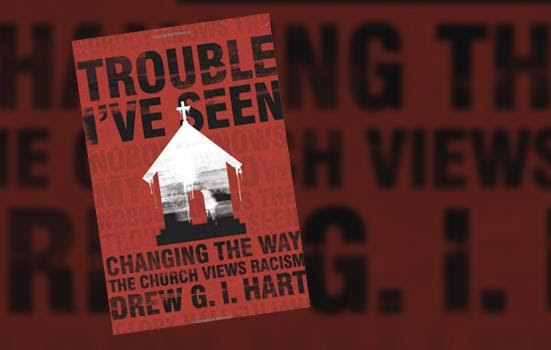The Good Seed and the Bad Seed
I’ve heard a lot of sermons and read many commentaries of Jesus’ parable about the good seed and bad seed but without much said about the seeds. Here are my “seed” thoughts.
Seeds are words, ideas, and actions that set examples. We can validate this from other Scripture passages, such as the parable of the sower found in Matthew chapter 13. Jesus explained this parable to his disciples in clear language, but before explaining it to them, he answered their question of why he spoke in parables.
“This is why I speak to them in parables:
“Though seeing, they do not see;
though hearing, they do not hear or understand.
“In them is fulfilled the prophecy of Isaiah:
“‘You will be ever hearing but never understanding;
you will be ever seeing but never perceiving.
For this people’s heart has become calloused;
they hardly hear with their ears,
and they have closed their eyes.
Otherwise they might see with their eyes,
hear with their ears,
understand with their hearts
and turn, and I would heal them.’”
In this quote from Isaiah, Jesus mentions both seeing and hearing; that is, hearing words that express ideas and experiencing those same ideas as they play out in the example of others. Suppose you saw someone handing food to a homeless person. What would you personally think about that act? Would everyone think the same thing? There are many possible thoughts you could have, but each will depend on your focus and past experiences. If you focus on the homeless person you might think he deserves someone to help him because he cannot help himself, or you might think he does not deserve someone to help him because it is his own fault he’s homeless. If you focus on the giver, you might think they are compassionate and worthy of praise, or you might think they have ulterior motives and are doing a good thing for someone in order to receive praise, or you might think they are making homelessness profitable and exasperating the problem, and therefore are worthy of your condemnation. If you focus on yourself, you might think of your own needs and wonder if the giver would be willing to help you without asking anything in return, or you might be moved to compassion and want to follow the example of the giver and help people in need, or you might be aware of your anger toward both the homeless person and the giver. Regardless, you were not born yesterday, but have years of experience leading up to that moment, and those former experiences determine what your response is to what you hear and see, just as what you hear and see becomes part of your experiences going forward, and thus determine your response to the next event, and the next, and the next. This is how we learn and change over time. However, suppose we were to see the giver hand food to the homeless person and then actively try not to think about it, but to turn our eyes away and forget about it?
Before explaining the parable of the sower, Jesus talks about words, ideas, and actions and their failure to produce the desired outcome because people “hardly hear” and have “closed their eyes.” To put it another way, we actively block ideas and experiences so that we do not learn and do not change. Otherwise we might see and hear and turn; we might change direction – change the course of our lives and become whole (healed).
Then Jesus goes on to explain the parable to them, saying: “When anyone hears the message...this is the seed.” Therefore, seeds in this context are messages, ideas, and experiences that are made up of actions and words. A seed can be a truth or a lie; it can be positive or negative; good or bad. Once Jesus finishes explaining the sower parable, he immediately tells them another parable about seeds.
“Jesus told them another parable: 'The kingdom of heaven is like a man who sowed good seed in his field. But while everyone was sleeping, his enemy came and sowed weeds among the wheat, and went away. When the wheat sprouted and formed heads, then the weeds also appeared.
“The owner’s servants came to him and said, ‘Sir, didn’t you sow good seed in your field? Where then did the weeds come from?’
“‘An enemy did this,’ he replied.
“The servants asked him, ‘Do you want us to go and pull them up?’
“‘No,’ he answered, ‘because while you are pulling the weeds, you may uproot the wheat with them. Let both grow together until the harvest. At that time I will tell the harvesters: First collect the weeds and tie them in bundles to be burned; then gather the wheat and bring it into my barn.’”
By the time Jesus got to this parable, he had already made it clear that seeds are words that form ideas. They are teachings, whether formal or informal. They are actions that serve as examples. Jesus describes some ideas as good seed and other ideas as weed seeds. Both result in change, but one for good and the other as worthless.
In the time of Jesus, writing had long ago been invented and the scroll was the popular form of preserving writing. Each synagogue had scrolls containing scripture, and there were libraries throughout the civilized world that contained thousands of scrolls of learning. In addition, books first began to appear in about 23 B.C. in Rome, the Middle East, and Asia. However, most of the people did not own scrolls and had never seen a book, and whether most could read and write is doubtful. Learning was through listening and watching, just as Jesus said: that we might see with our eyes, hear with our ears, and understand with our hearts (mind).
The course of history is set according to what the majority believe, and what the majority believe has been based in empirical evidence. Seeing is believing. However, as science advanced, humanity has discovered that what appears to be is not always what is. So, the empirical has been augmented with the scientific, so that most learning today comes from books instead of from seeing and hearing. Our truths are based on knowledge, not observation. For instance, virtually everyone believes the Earth is round and that all matter is made of atoms, which are basically formed from three primary sub-atomic particles, and yet almost no one has observed the roundness of the planets or seen atomic particles. Although belief has changed, the way to belief has not changed, and that way is still through words that form ideas.
Going back to Jesus’ parable of the wheat and the weeds. Good words (ideas) and actions, i.e. truthful, uplifting, loving, hopeful words produce people (wheat) who imitate God, in that they become loving and compassionate. Words and ideas and actions that are useless, destructive, hateful, and devoid of promise produce people (weeds) who perpetuate these very same ideas. Humanity, being intertwined like the roots of wheat and weeds, cannot be separated. More than that, within each of us is both love and hate, so the battle of love and hate in society is an extension of the battle of love and hate within ourselves, and we cannot separate them in society any more than we can separate them within ourselves. And so, it begs the question, which will win in the end, love or hate? In Les Misérables, Victor Hugo wrote, “If the soul is left in darkness, sins will be committed. The guilty one is not he who commits the sin, but the one who causes the darkness.” Notice in the parables that Jesus speaks of the sower of words (seeds) as producing either light or darkness in those who hear, and thus changing them. The wheat is the product of good words (honest, truthful) and the weeds are the product of bad words (deceptive, lies). Neither the wheat nor the weeds choose what they see and hear, but rather, they are the result of their environment. Ideas form the environment and the environment helps to form the person, and then each person spreads the ideas, good or bad, to those who came after them. History flows forward like a river, everyone influencing everyone else through words and actions.
What if you or I were considerable influencers of others? What if our words and ideas and actions influenced thousands or millions instead of just those to whom we have direct contact? What if we were a Plato or Shakespeare or Gandhi or Dickens or a M.L.K? Because of influence through words and actions, love is winning and has continued to make all aspects of life better over time. To be sure, the battle still rages day-by-day but both the empirical and the scientific evidence suggests that the trend is toward life, and away from death; toward love, not hate; toward knowledge over ignorance.
Still, whether you are a great influencer or a little influencer, your heart spews words and actions and is therefore responsible for the direction of the world. And the condition of your heart is determined by the things you hear (or read) and see. Therefore, it would be wise to eat the good seed. Hear the good word. Listen to the good news. Seek the truth. Then you will be transformed into the wheat, and the sower of good seed.
1 Peter 1:23 - For you have been born (germinated) again, not of perishable seed (ideas), but of imperishable (ideas), through the living and enduring word of God.
1 John 3:9 - No one who is born (germinated) of God will continue to sin, because God’s seed (word) remains in them; they cannot go on sinning, because they have been born of God.
Photo by Melissa Askew on Unsplash




Comments
Post a Comment